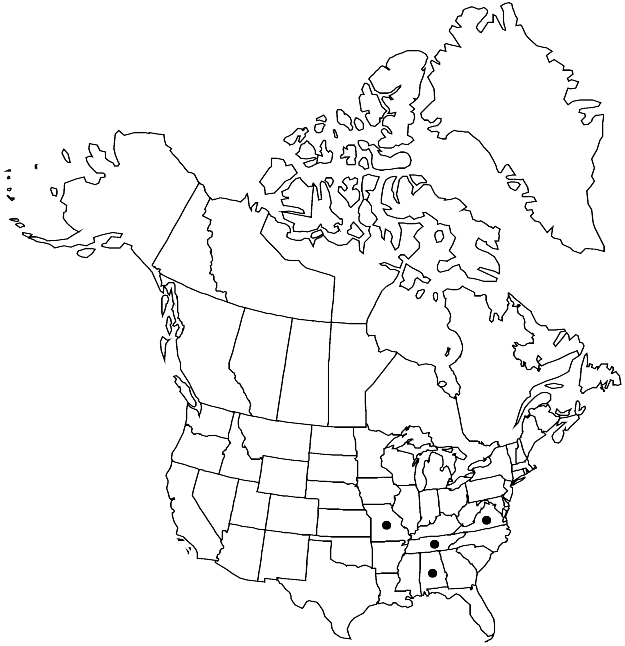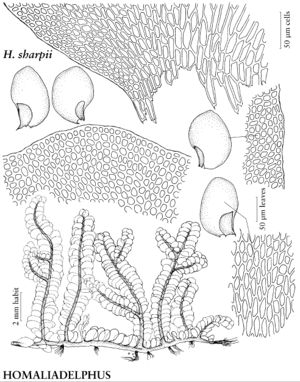Difference between revisions of "Homaliadelphus sharpii"
Castanea 9: 107. 1944.
Illustrated
Basionym: Homalia sharpii R. S. Williams Bryologist 34: 20, plate 2. 1931
Treatment appears in FNA Volume 28. Treatment on page 610.
imported>Volume Importer |
imported>Volume Importer |
||
| Line 53: | Line 53: | ||
|publication year=1944 | |publication year=1944 | ||
|special status=Illustrated | |special status=Illustrated | ||
| − | |source xml=https:// | + | |source xml=https://bitbucket.org/aafc-mbb/fna-data-curation/src/2e0870ddd59836b60bcf96646a41e87ea5a5943a/coarse_grained_fna_xml/V28/V28_958.xml |
|genus=Homaliadelphus | |genus=Homaliadelphus | ||
|species=Homaliadelphus sharpii | |species=Homaliadelphus sharpii | ||
Latest revision as of 21:39, 5 November 2020
Plants less than 3 cm. Stems with flagelliform branches absent. Stem and branch leaves 0.5–1.5(–2) mm; basal laminal cells 20–27 × 9 µm; distal medial cells irregularly rhombic, 10 × 10 µm; apical cells rounded-quadrate to short-oblong, 6–9 × 6 µm; basal marginal cells short-rhomboidal to fusiform-elongate, 9 × 8 µm, walls slightly pitted. Perichaetial inner leaves with base sheathing, margins entire to crenulate proximally, serrulate, apex obtuse, basal laminal cells rectangular, apical cells quadrate to rhombic.
Habitat: Shaded calcareous rock, cliffs or soil, hardwood-pine forests
Elevation: moderate elevations (200-500 m)
Distribution

Ala., Mo., Tenn., Va., s Mexico, Asia (China, India, Japan).
Discussion
Selected References
None.
Lower Taxa
None.
